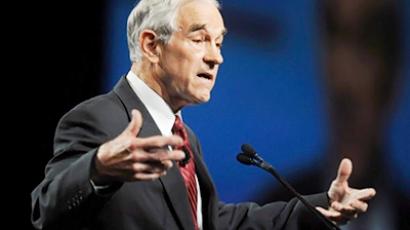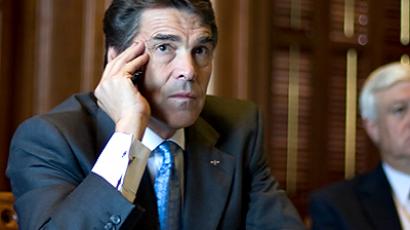Iowa as kingmaker
It is the place where thick stalks of corn blanket the landscape, simultaneously standing proud and swaying with the wind; where city centers resemble a different time; and those who live here say they are the true embodiment of Main Street America.
If you ask Dena Recter, one voter from Iowa, she says that residents in her state are generally welcome, open and very practical. It turns out that they are also very powerful.“We get a firsthand look at all the candidates.They come to our cities they come to our area. We get to sit down, hold meetings with them, ask them questions, find out of what their real core values are which is very important to Iowa,” said Heidi Tigges another voter from the state of Iowa.This happens because the Iowa caucuses are among the first stops in the presidential primary. But for Republicans, the initial hurdle is always the Iowa Straw Poll.You could say it’s a popularity contest meets county fair, but don’t let this carnival-like atmosphere fool you. What’s happening here can and has carried significant weight. It can determine who sinks and whose campaign carries on. It’s a prime example of small town politics with big time consequences.“I’ve lived here for two years and I’ve never felt more energy and interest in politics than living here actually,” said Iowa voter Nancy Hafer to RT.“They call it retail politics out here where you’d be able to talk to the candidates,” said John Strong, another Iowa voter.“I think that’s good,” adds Strong.And yes, it’s good for Iowa for sure. But out of the 50 states, Iowa’s population ranks thirtieth at a mere three million. More than 91 percent of those who do live here are white, and its economy is primarily agricultural. But candidates nevertheless spend considerable time and money on the state.This year the winner of the Iowa Straw Poll was Michelle Bachmann, but in second place, missing out by only 152 votes, was Congressman Ron Paul.“He came very close. Very, very close,” economist Lew Rockwell of the Ludwig Von Mises Institute told RT. “The political establishment is going to have to be torn down — I think Ron Paul can do that,” adds Rockwell.With a media blackout practically barring the mainstream news from reporting on Paul’s placing in at number two, Rockwell still sees it as an important victory in his campaign, even if it is just the Iowa Straw Poll.“Even if he were not to win the nomination, he is changing the American people,” said Rockwell. “He is changing and educating them.”In 1999, George W Bush won the Iowa Straw Poll, and while he is the only that’s gone on to win the presidency so far, Iowa voters threat voting as a duty.“I think the people of Iowa are pretty good at seeing through what is sometimes the glitter, a little bit shiny and they find the substance and the basics that are basically here in the candidates,” says local David Greenspon.“Being from the Midwest a lot of times people associate us with what’s really the best about America,” says Iowa voter Dallas Hosey.“And I think that when we vote people take it seriously.”But for those on the outside, it can also be a perplexing reality that in the land where corn is king, its people are in some ways viewed as kingmakers.














